On the morning of June 20, 2025, the scientific conference titled “Policies on Scholarships and Living Expenses for Students in Basic Sciences, Core Engineering, and Strategic Technology Fields” was held at Ho Chi Minh City University of Technology and Education (HCMUTE). The event was jointly organized by the Ministry of Education and Training (MOET) and HCMUTE, with the aim of contributing to the development of policies that attract learners and advance education in critical scientific and technological fields, thereby ensuring a high-quality workforce to serve the country’s development in the new era.
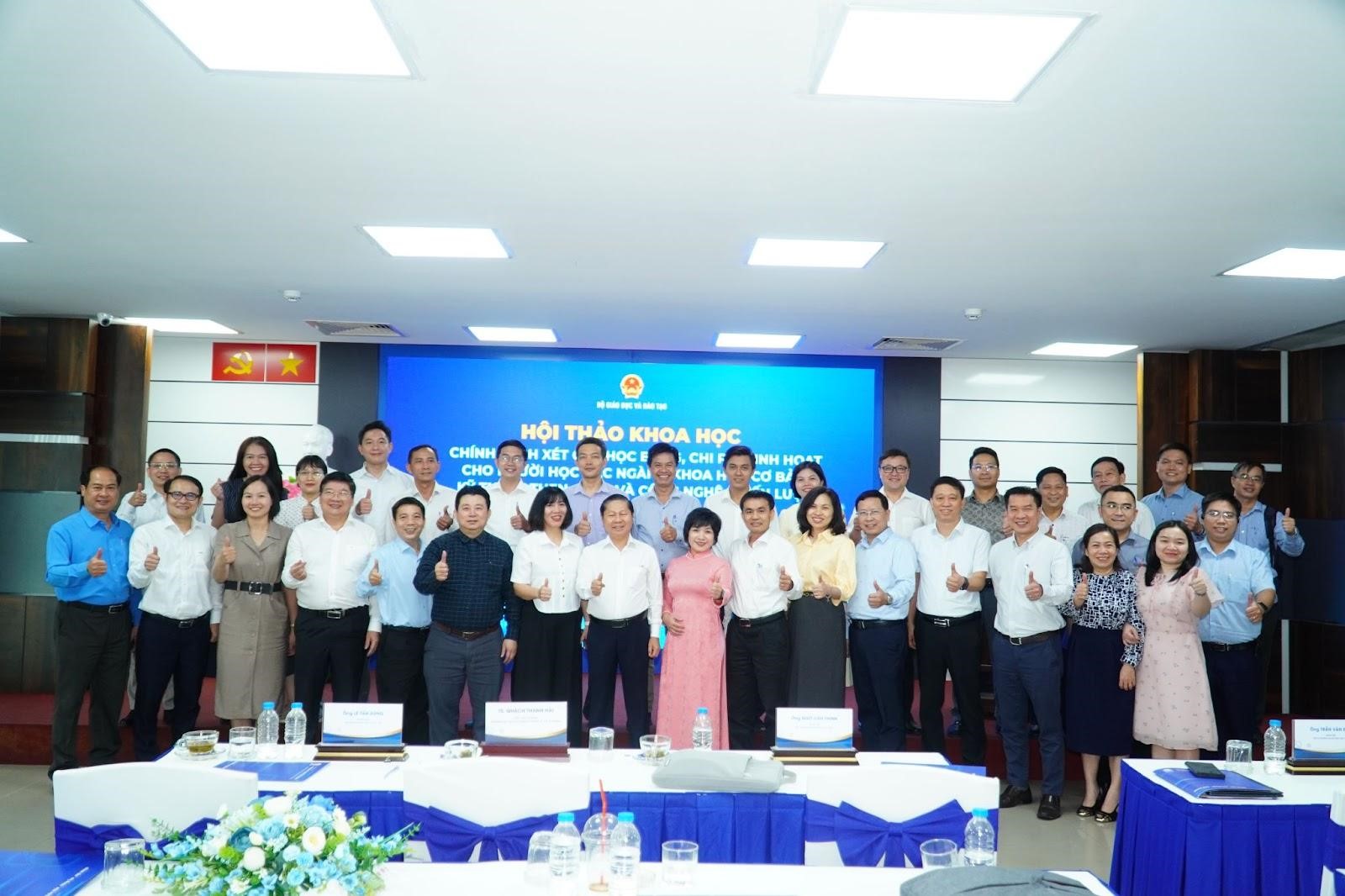
MOET Leaders and Representatives of Higher Education Institutions
Attending the Conference
The conference welcomed Mr. Le Tan Dung – Deputy Minister of MOET; Mr. Ngo Van Thinh – Deputy Director of the Department of Planning and Finance, MOET; and Mr. Nguyen Anh Dung – Deputy Director of the Department of Higher Education, MOET.
Representing HCMUTE were Dr. Quach Thanh Hai – Vice President of the university, and Dr. Tran Thanh Huong – Head of Admissions and Student Affairs. The event also saw participation from leaders and representatives of various institutions, including Vietnam National University, Hanoi; Vietnam National University, Ho Chi Minh City; Hanoi University of Science and Technology; University of Science – VNU-HCM; the Institute of Mathematics; and the Vietnam Institute of Educational Sciences, among others.
In his keynote speech, Deputy Minister Le Tan Dung emphasized the importance of establishing scholarship policies to support students in basic science, core engineering, and strategic technology fields. These policies are crucial to attracting, nurturing, and developing a high-quality human resource base. He stressed that the conference served as an opportunity for the drafting committee and MOET to gather input from experts, scientists, and educators to refine the policy framework to be practical, effective, and aligned with student needs.
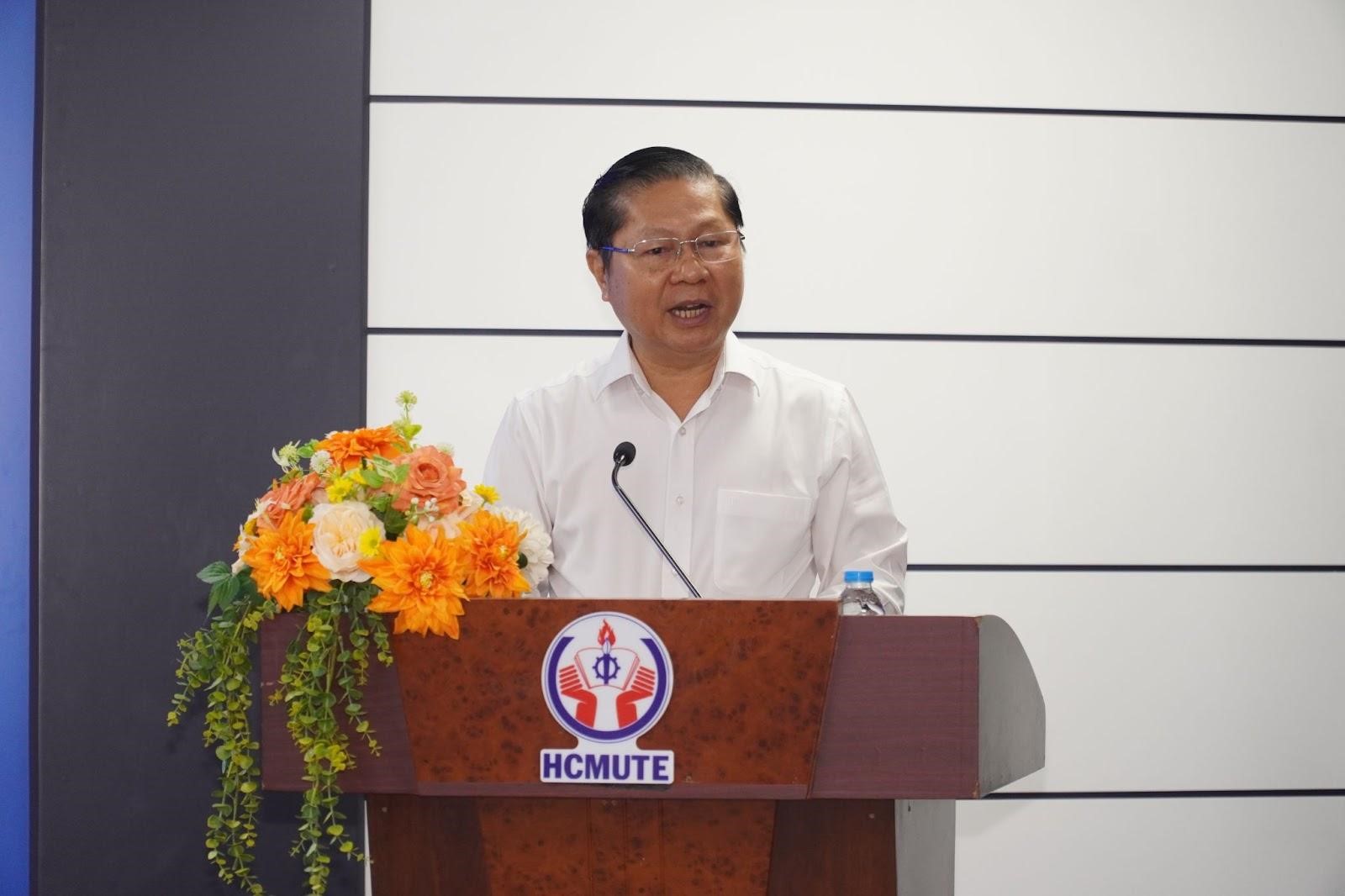
At the conference, Mr. Ngo Van Thinh – Deputy Director of the Department of Planning and Finance, MOET; Deputy Head of the Drafting Committee; and Head of the Editorial Team – presented an overview of the draft Decree. He highlighted that these fields play a crucial role in promoting innovation, enhancing production capacity, and boosting national competitiveness. However, there is still a shortage of qualified human resources in these areas, particularly highly skilled young engineers and scientists. The proposed living expense support policy is expected to attract and retain students, contributing to national economic growth.
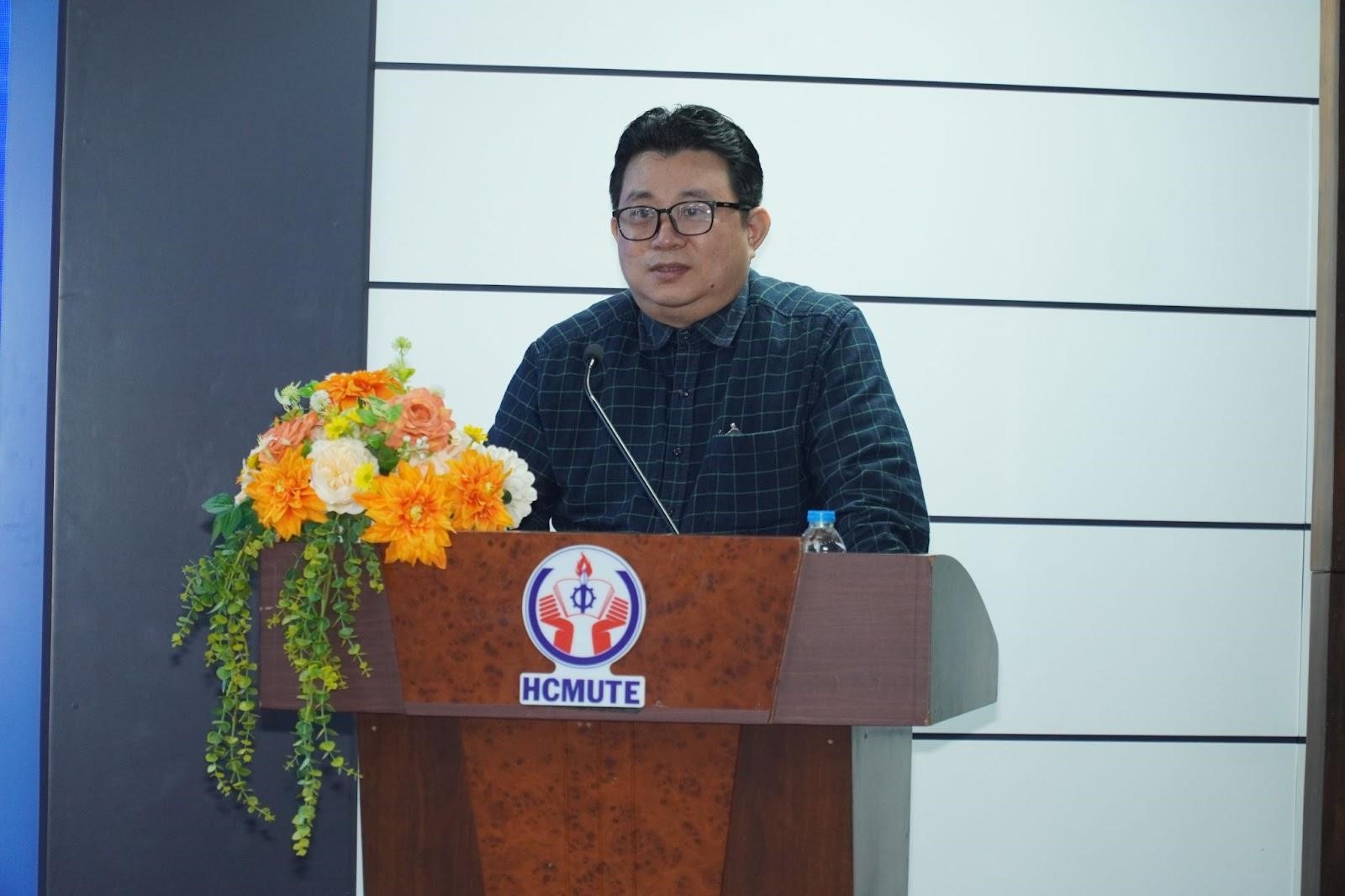
Dr. Quach Thanh Hai, Vice President of HCMUTE, emphasized that the three key areas – basic sciences, core engineering, and strategic technology – are the backbone of scientific and technological development in Vietnam. However, attracting and retaining students remains a significant challenge, particularly concerning scholarships and living expenses. He noted that this issue requires a comprehensive approach and synchronized solutions.
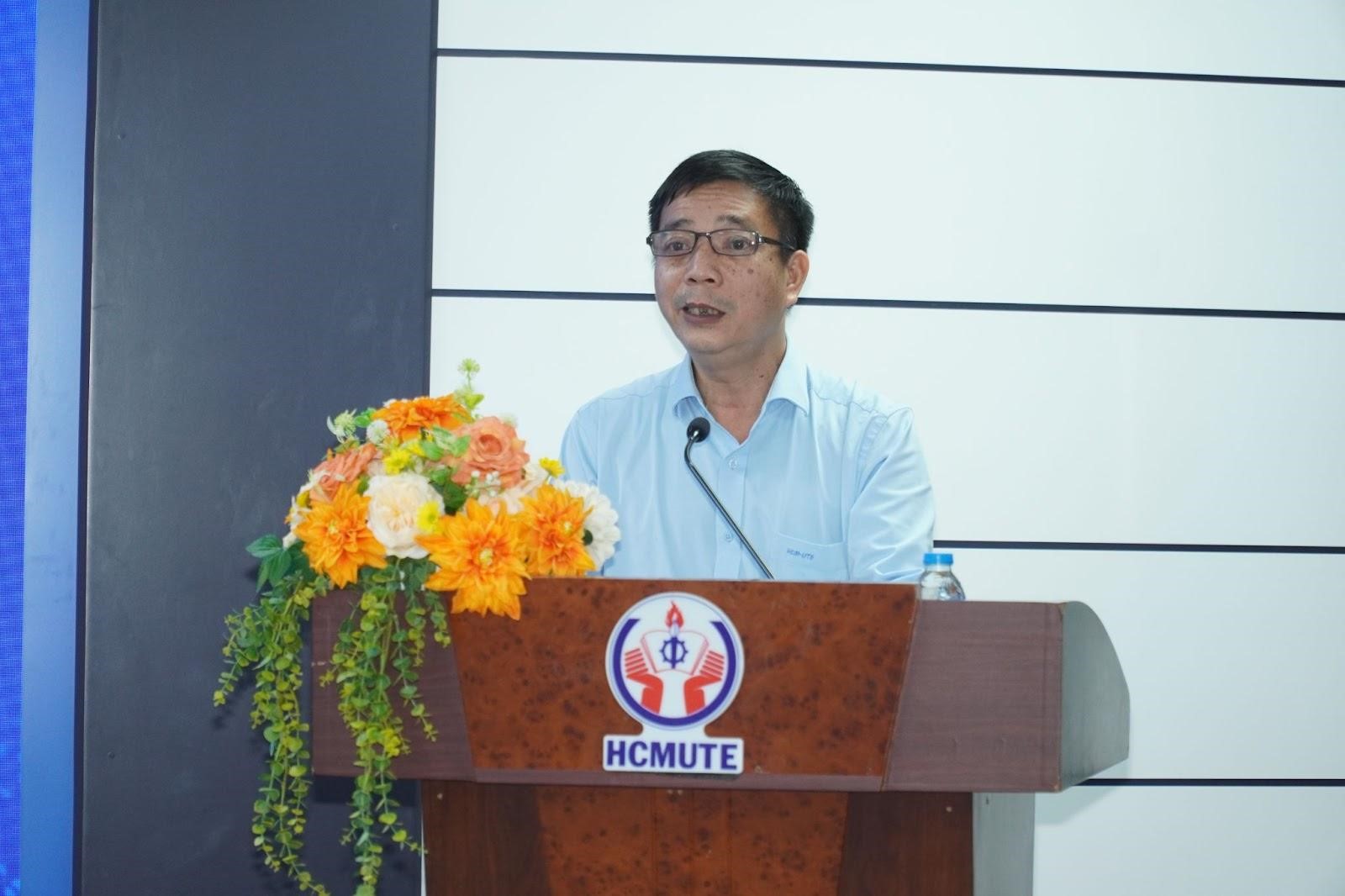
At the conference, Assoc. Prof. Dr. Duong Ngoc Khanh, Deputy Head of Academic Affairs at Hanoi University of Science and Technology, delivered a presentation on Developing Mechanisms for Scholarships, Financial Aid, and Talent Encouragement in Undergraduate and Postgraduate Education for Core Scientific and Technological Fields.
Following this, Assoc. Prof. Dr. Nguyen Thanh Nam, Deputy Dean of the Faculty of Biology at the University of Science – Vietnam National University, Hanoi, presented on Human Resource Development in Basic Sciences at the University of Science: Challenges, Opportunities, and Strategic Solutions from the Perspective of Life Science Education.
Dr. Tran Thanh Thuong, Head of Admissions and Student Affairs at HCMUTE, shared about the university’s scholarship policies. Notably, HCMUTE offers a 50% tuition fee reduction for female students enrolling in engineering programs, aiming to encourage more women to pursue fields traditionally underrepresented by females. This policy was highly praised by Deputy Minister Le Tan Dung as it fosters sustainable STEM development, particularly in the context of digital transformation.
The conference also recorded numerous valuable contributions from experts, scientists, and educators, which will serve as a foundation for MOET to continue improving the draft Decree to ensure feasibility, effectiveness, and alignment with the development of higher education in Vietnam.
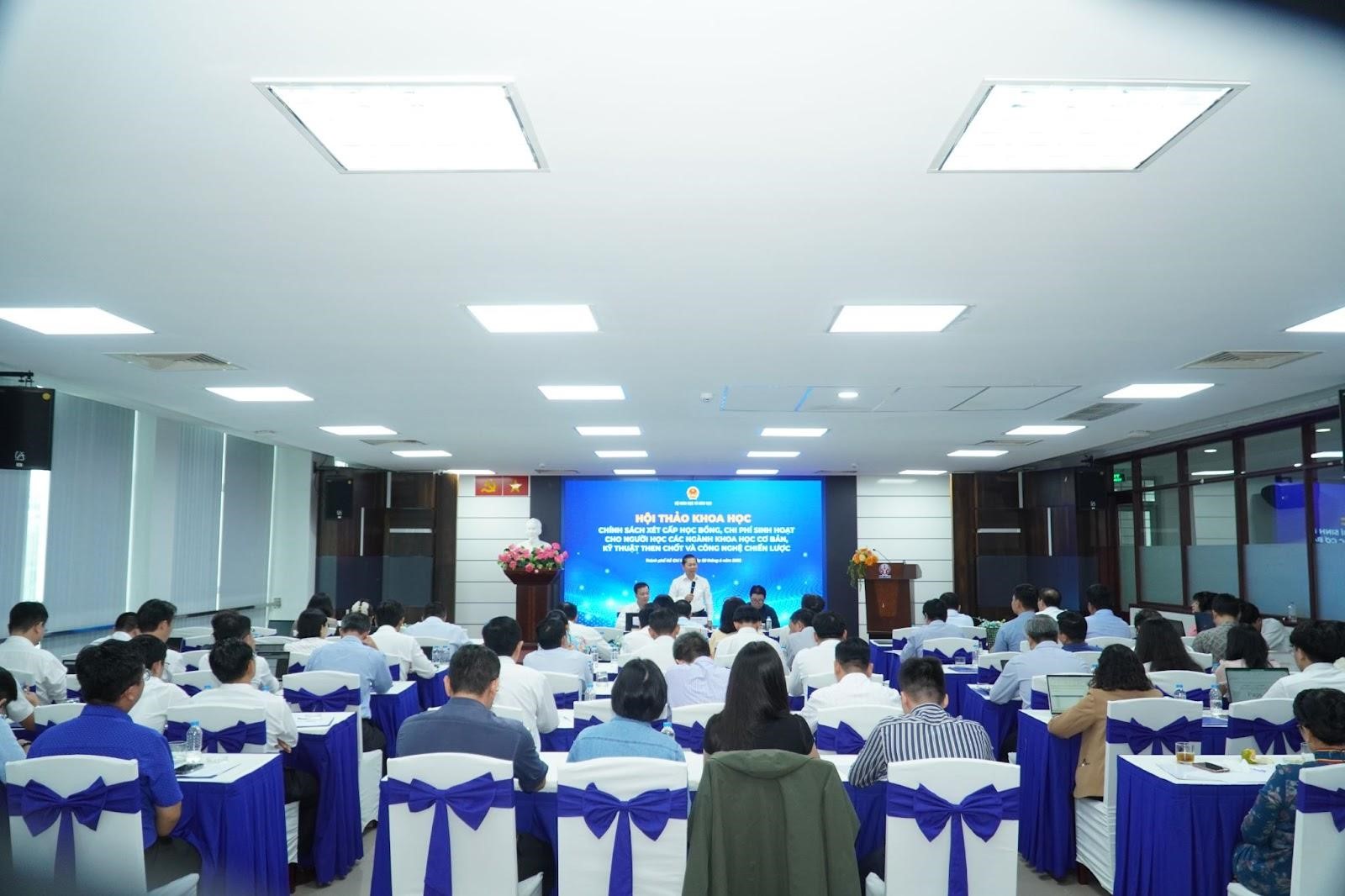
Through this collaboration with MOET, HCMUTE reaffirmed its commitment to supporting leadership efforts in policy development, particularly in creating support systems for students in basic sciences, key engineering, and strategic technology fields. The university not only focuses on education quality but also actively implements practical scholarship policies to attract students to foundational fields, contributing to the development of a high-quality workforce for the country’s future.